The following books have been suggested by our members and the policing community to assist individual members and their families.
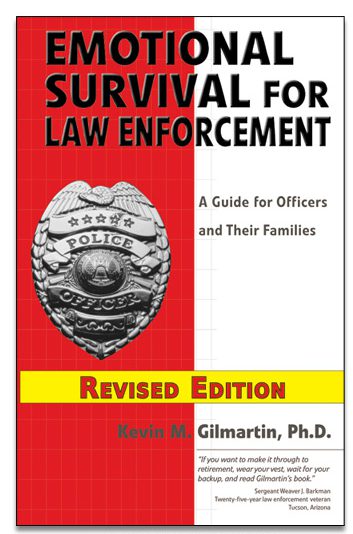
EMOTIONAL SURVIVAL FOR LAW ENFORCEMENT
by Kevin M. Guilmartin, Ph.D.
Emotional Survival for Law Enforcement Officers addresses the dynamics that can transform within a matter of a few years, idealistic and committed law enforcement officers/employees into cynical, angry individuals who begin having difficulties in both the personal and professional aspects of their lives. It points out how law enforcement personnel develop a social perceptual set that can potentially see employees engaging in inappropriate behavior patterns and decision-making that leads to both administrative and can unfortunately in some personnel lead to criminal difficulties. The basic theme and goal of the book is to provide information that lets the officer/employee see how the deterioration process can take place and what specific preventative strategies can be employed to reduce the negative emotional impact of a law enforcement career. The book was written with the goal to provide information that assists law enforcement personnel to remain committed and engaged in productive law enforcement.
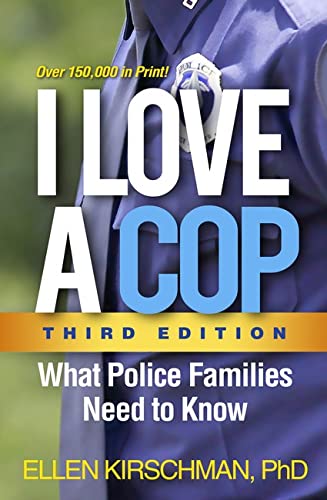
I Love A Cop
by Ellen Kirschman, PhD
Police families are brave, resilient, and proud–and they face remarkable challenges, sometimes on a daily basis. Now thoroughly updated for today’s turbulent times, this is the resource that cops and their loved ones have relied on for decades. Trusted expert Ellen Kirschman gives you practical ways to manage the stress of the job and create a healthy, supportive home environment. The third edition features the latest information, new stories from police families, two new chapters, and fully updated resources. Dr. Kirschman acknowledges the tough realities of life on the force and offers frank, realistic suggestions for handling everyday relationship dilemmas as well as serious issues like trauma, domestic violence, and alcohol abuse. Whether you read this book cover to cover or reach for it when problems arise, you will find no-nonsense guidance to help your family thrive.
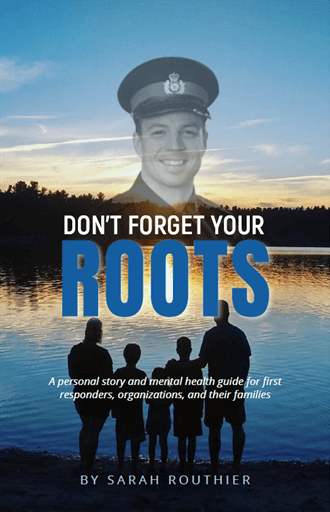
DON’T FORGET YOUR ROOTS
by Sarah Routhier
Sylvain Routhier was a remarkably successful police sergeant with a struggle that would uproot everything.
He was dedicated to his career with the Ontario Provincial Police, and active in his community. Affectionately known as “Roots”, he was adored by friends and family, yet no one knew the weight he silently began to carry: PTSD and a mental illness were gripping his thoughts and overtaking his life, which ended sadly, in the summer of 2018.
This is Sylvain’s story, told by his wife Sarah. It’s an honest and raw account of their love, their struggle, and the tragedy their family lived through.
Discover the warning signs Sarah wishes she would have known as a police wife, how she has overcome adversity, and how Sylvain’s death has become a catalyst for change for first responders and their organizations.
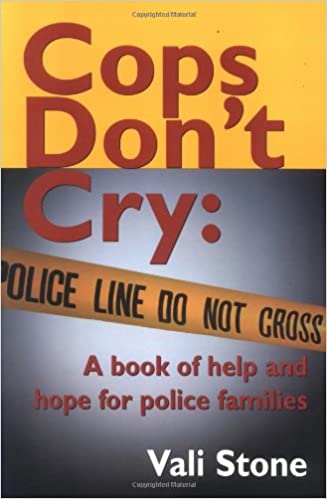
Cops Don’t Cry
by Vali Stone
Policing is a consuming profession with incredibly high elements of stress. Research suggests that police divorce rates are more than double the national average of ordinary marriages. The spouse’s fear of physical danger, adjusting to shift work, transfers and changes in the officers’ personality are only a few of the contributing factors, but the most crucial problem is the breakdown of communication within the relationship. From the beginning of the officers’ careers they are trained to control their emotions, and thus are accused of being cold-hearted. Spouses agree that law enforcement officers grapple with the real-life horrors on the job and that the bitter belief that ‘cops don’t cry’ is sadly untrue.
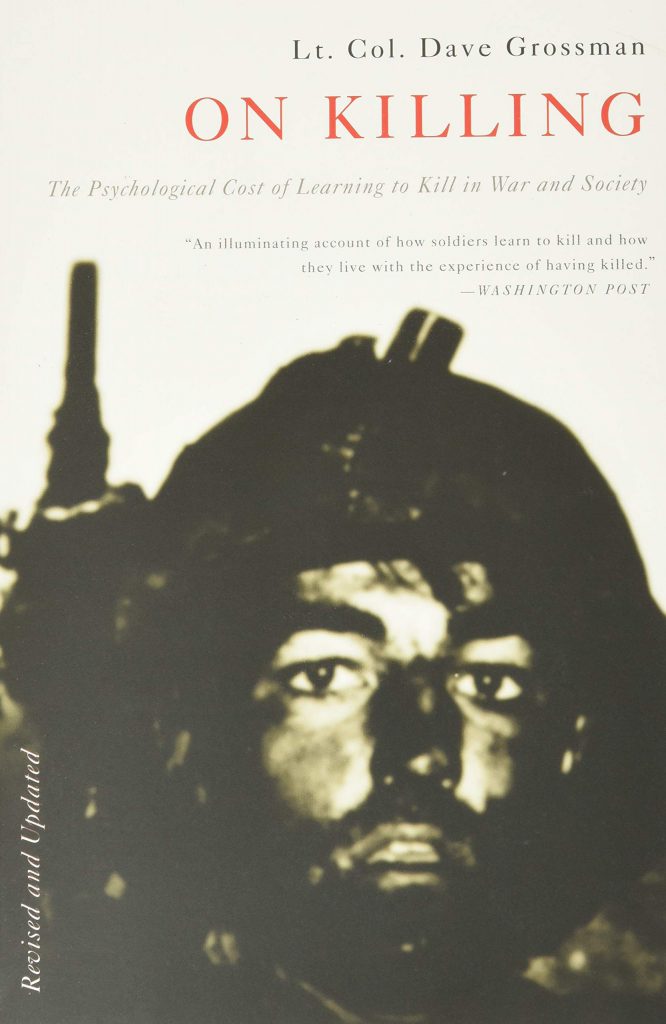
On Killing
by Lt. Col. Dave Grossman
The good news is that most soldiers are loath to kill. But armies have developed sophisticated ways of overcoming this instinctive aversion. And contemporary civilian society, particularly the media, replicates the army’s conditioning techniques, and, according to Lt. Col. Dave Grossman’s thesis, is responsible for our rising rate of murder among the young.
Upon its initial publication, ON KILLING was hailed as a landmark study of the techniques the military uses to overcome the powerful reluctance to kill, of how killing affects soldiers, and of the societal implications of escalating violence. Now, Grossman has updated this classic work to include information on 21st-century military conflicts, recent trends in crime, suicide bombings, school shootings, and more. The result is a work certain to be relevant and important for decades to come.
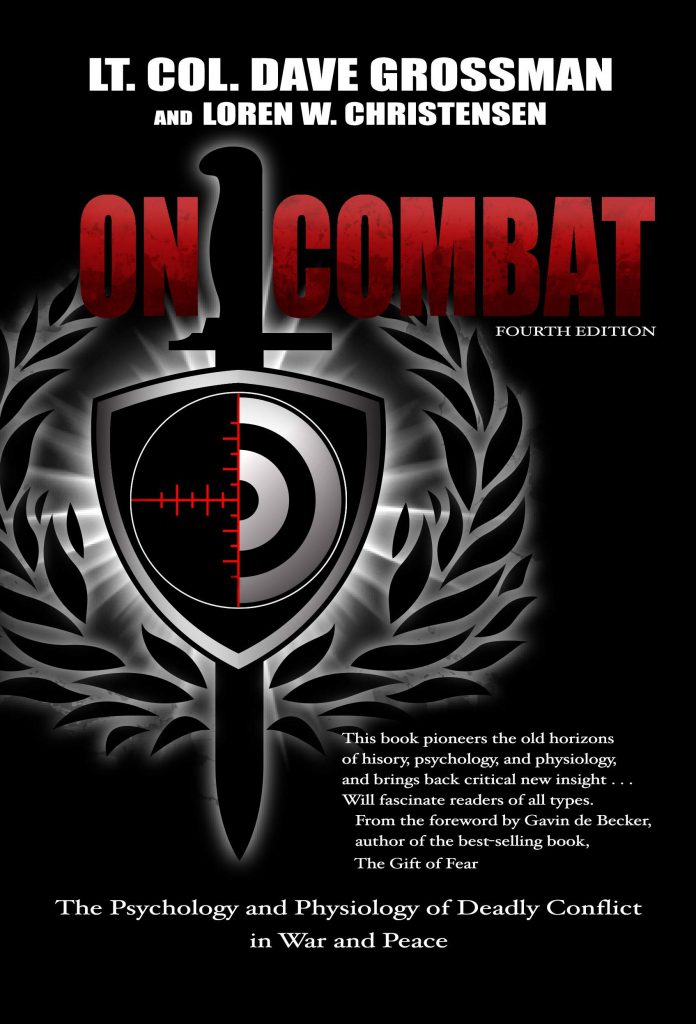
On Combat
by Lt. Col. Dave Grossman and Loren W. Christensen
On Combat looks at what happens to the human body under the stresses of deadly battle, the impact on the nervous system, heart, breathing, visual and auditory perception, memory – then discusses new research findings as to what measures warriors can take to prevent such debilitations so they can stay in the fight, survive, and win. A brief, but insightful look at history shows the evolution of combat, the development of the physical and psychological leverage that enables humans to kill other humans, followed by an objective examination of domestic violence in America. The authors reveal the nature of the warrior, brave men and women who train their minds and bodies to go to that place from which others flee. After examining the incredible impact of a few true warriors in battle, On Combat presents new and exciting research as to how to train the mind to become inoculated to stress, fear and even pain.
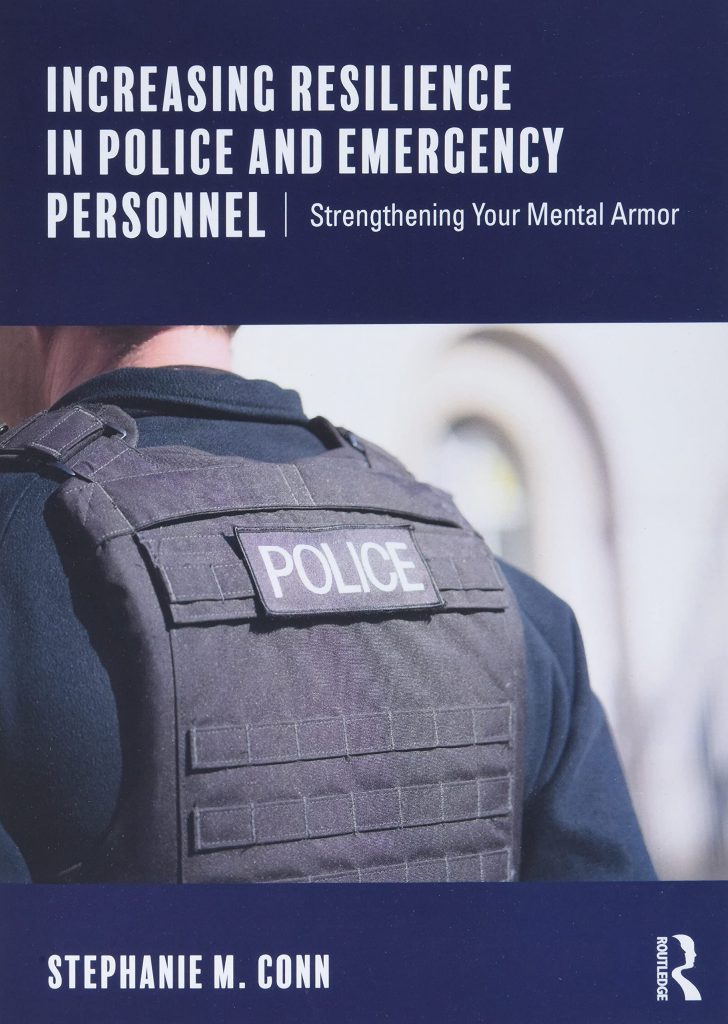
Increasing Resilience in Police and Emergency Personnel
by Stephanie M. Conn
Increasing Resilience in Police and Emergency Personnel illuminates the psychological, emotional, behavioral, and spiritual impact of police work on police officers, administrators, emergency communicators, and their families. Author Stephanie Conn, a clinician and researcher as well as a former police officer and dispatcher, debunks myths about weakness and offers practical strategies in plain language for police employees and their families struggling with traumatic stress and burnout. Sections of each chapter also offer guidance for frequently overlooked roles such as police administrators and civilian police employees. Using real-world anecdotes and exercises, this book provides strengths-based guidance to help navigate the many complex and sometimes difficult effects of police and emergency work.
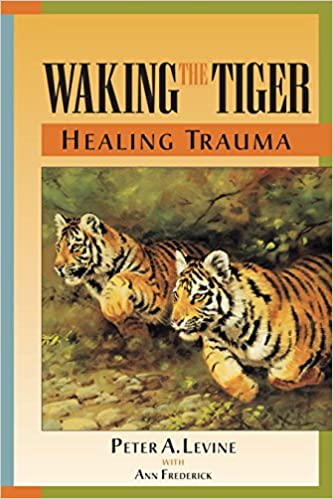
Waking the Tiger
by Peter A. Levine with Ann Frederick
Waking the Tiger offers a new and hopeful vision of trauma. It views the human animal as a unique being, endowed with an instinctual capacity. It asks and answers an intriguing question: why are animals in the wild, though threatened routinely, rarely traumatized? By understanding the dynamics that make wild animals virtually immune to traumatic symptoms, the mystery of human trauma is revealed.
Waking the Tiger normalizes the symptoms of trauma and the steps needed to heal them. People are often traumatized by seemingly ordinary experiences. The reader is taken on a guided tour of the subtle, yet powerful impulses that govern our responses to overwhelming life events. To do this, it employs a series of exercises that help us focus on bodily sensations. Through heightened awareness of these sensations trauma can be healed.
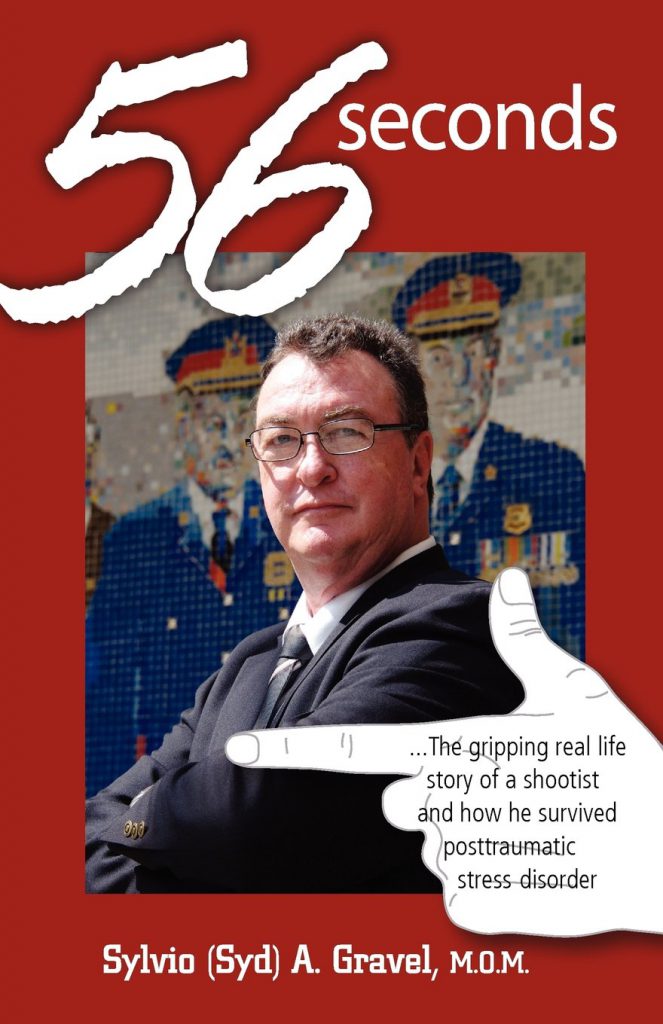
56 Seconds
by Syd A. Gravel
The hard-hitting, real-life testimonial of the need for peer support for posttraumatic stress-related injuries. 25 YEARS of PTSD* survival has given Syd some powerful insight. He has identified and shares: 4 guiding rules for workplace peer support 5 healing stages of recovery how to recognize the 8 most common symptoms of PTSD how to organize workshops for peer support networks Syd strongly believes that anyone who may become involved in traumatic or stressful situations or anyone who lives with such a person needs to know this before it happens. “56 Seconds is a must read for officers, their families and close colleagues to help them deal with the trauma from a police shooting.” -J.P. A police shooting survivor with 24 years in policing and still counting”
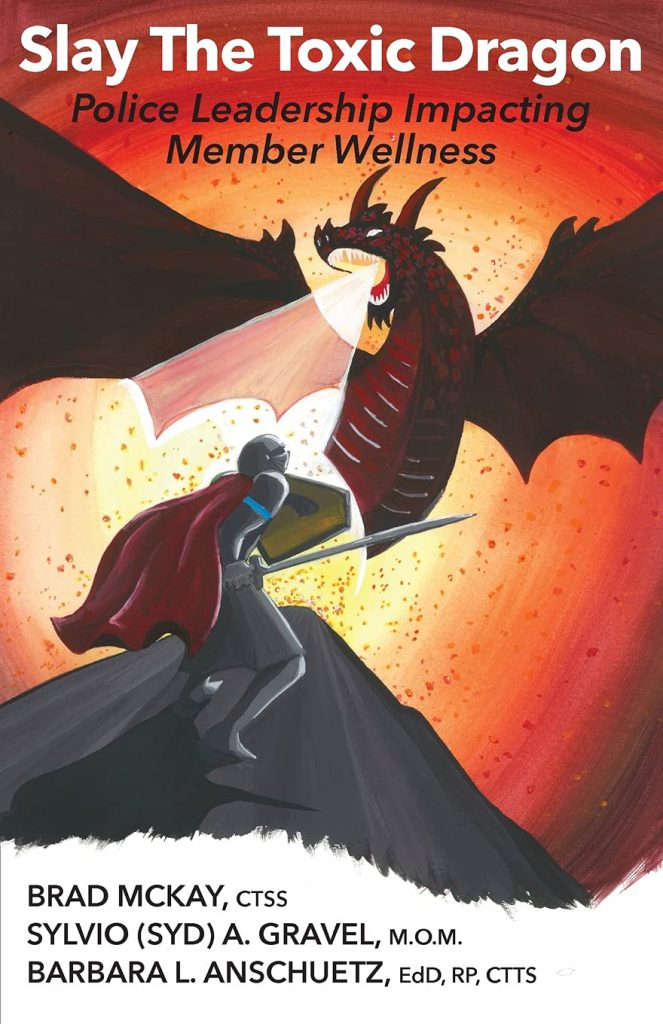
Slay the Toxic Dragon
by Brad McKay, Syd A. Gravel and Barbara L. Anschuetz
Toxicity is one word no executive ever wants to hear as it relates to their organization. It is understandable that organizations and the leaders within want to portray their work environment as supportive of their members when it comes to mental health, but we see far too many being hurt and unsupported for us to not speak out.
Toxicity can be very subtle. The more people talk about respect and support within the workplace the more elusive and conniving and controlling sources of toxicity can become. If it isn’t nipped in the bud, then toxicity can destroy an organization.
This book is truly about leaders taking ownership of their own environment and doing what is right. The more they know about what can go wrong the more likely they are to not let it take hold. Filled, from beginning to end, with example after example of survivors’ testimonials as to things gone wrong and strategies offered to address such situations and dilemmas based on a combined over 102 years of experience. All of the contents are anonymous, leaving everyone thinking… “Is this about me?”
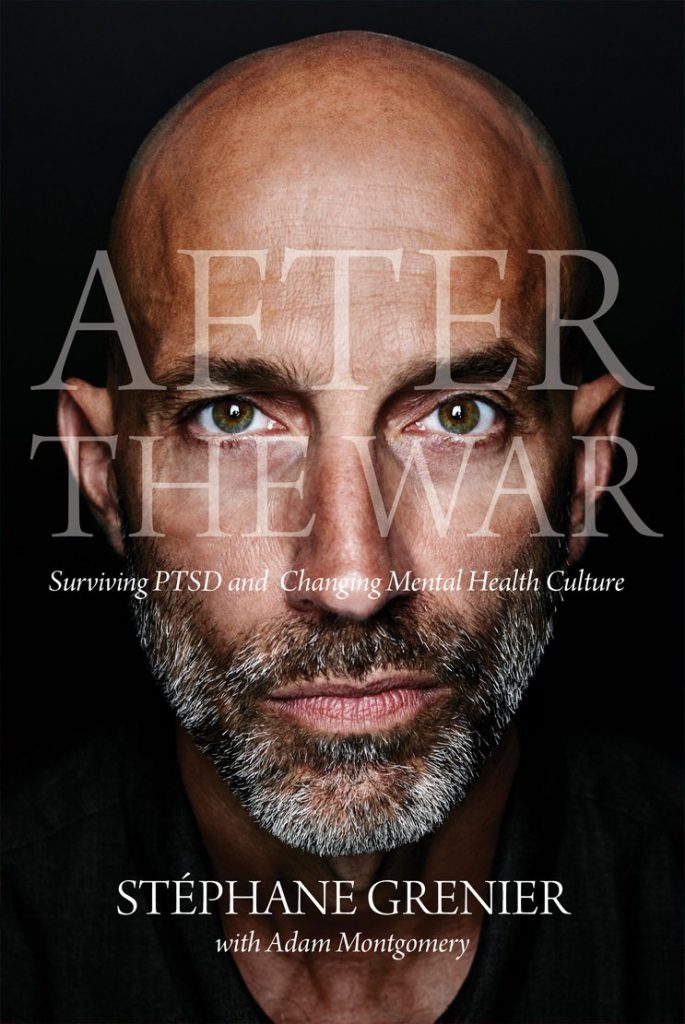
After the War
by Stéphane Grenier
After serving in Rwanda during the 1994 genocide and civil war, Lieutenant Colonel Stéphane Grenier returned to Canada haunted by his experiences. Facing post-traumatic stress disorder and an archaic establishment, he spent ten years confronting–and changing–the military mental health system from within.
Coining the term “Operational Stress Injury” to allow the military to see mental injury in the same light as a physical wound, Grenier founded the Operational Stress Injury Social Support program that provides help for mentally injured soldiers and veterans.
Since retiring from the military in 2012, his groundbreaking approach has been adopted by civilian society. Through his social enterprise Mental Health Innovations, Grenier delivers his direct “walk the talk” method to improve mental well being in government and business.
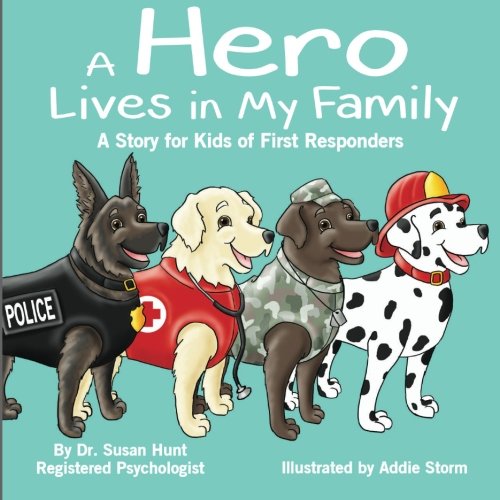
A Hero Lives in my Family
by Susan Hunt
A Hero Lives in My Family: A Story for Kids of First Responders – First Responders are Heroes! Helping Heroes include: police officers, emergency medical service providers (e.g., paramedics, ER doctors or nurses), firefighters, and military personnel. They save, help, serve, and protect others! This story is for kids of first responders to learn about their Helping Hero’s job and the various feelings it can bring about. At the end of the day, the Helping Hero’s favorite job is being a parent!
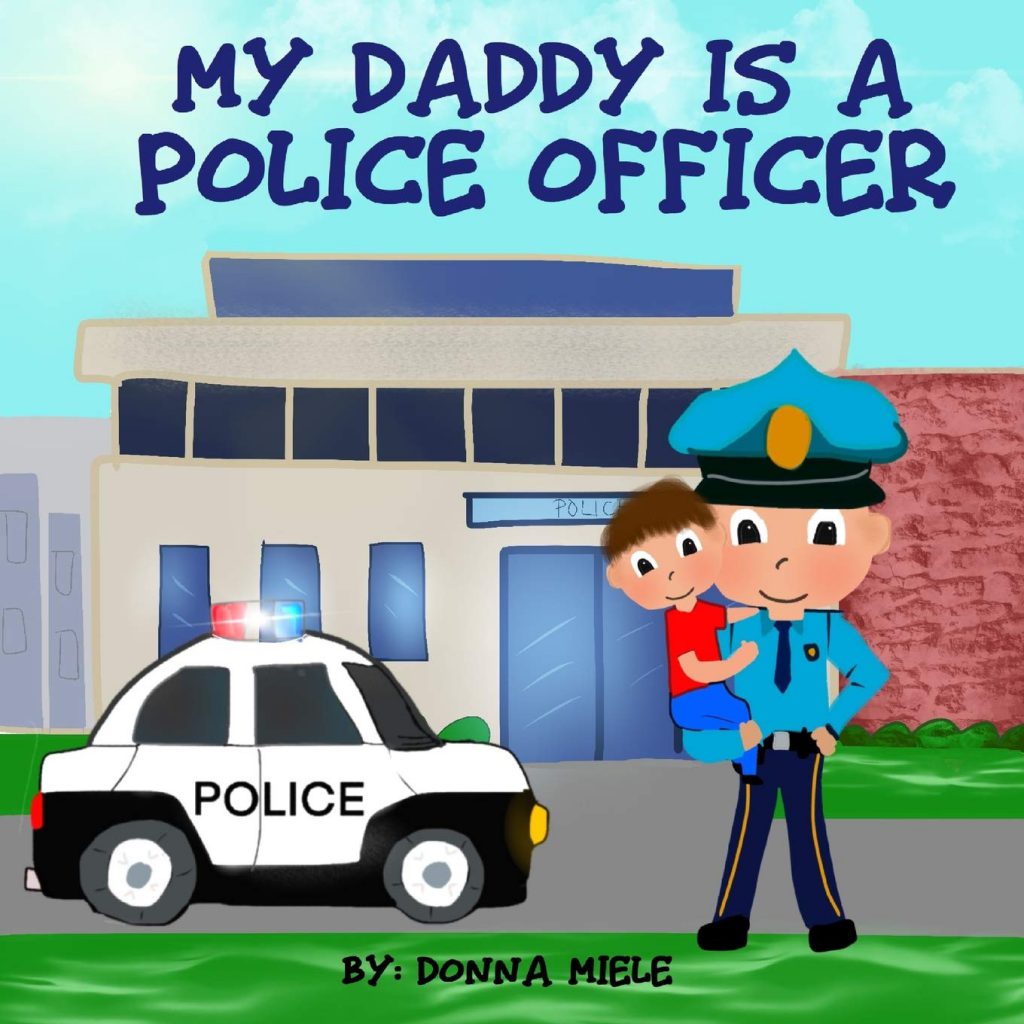
My Daddy is a Police Officer
by Donna Miele
A perfect book for the children of police officers to be read before leaving for work, or at any time. A great way to remind your little ones how much you love them even when you can’t always be there due to the nature of your job. A children’s story about a boy’s hero, his Police Officer Daddy, and how he keeps the community safe, while being sure to remind his son how loved he is.
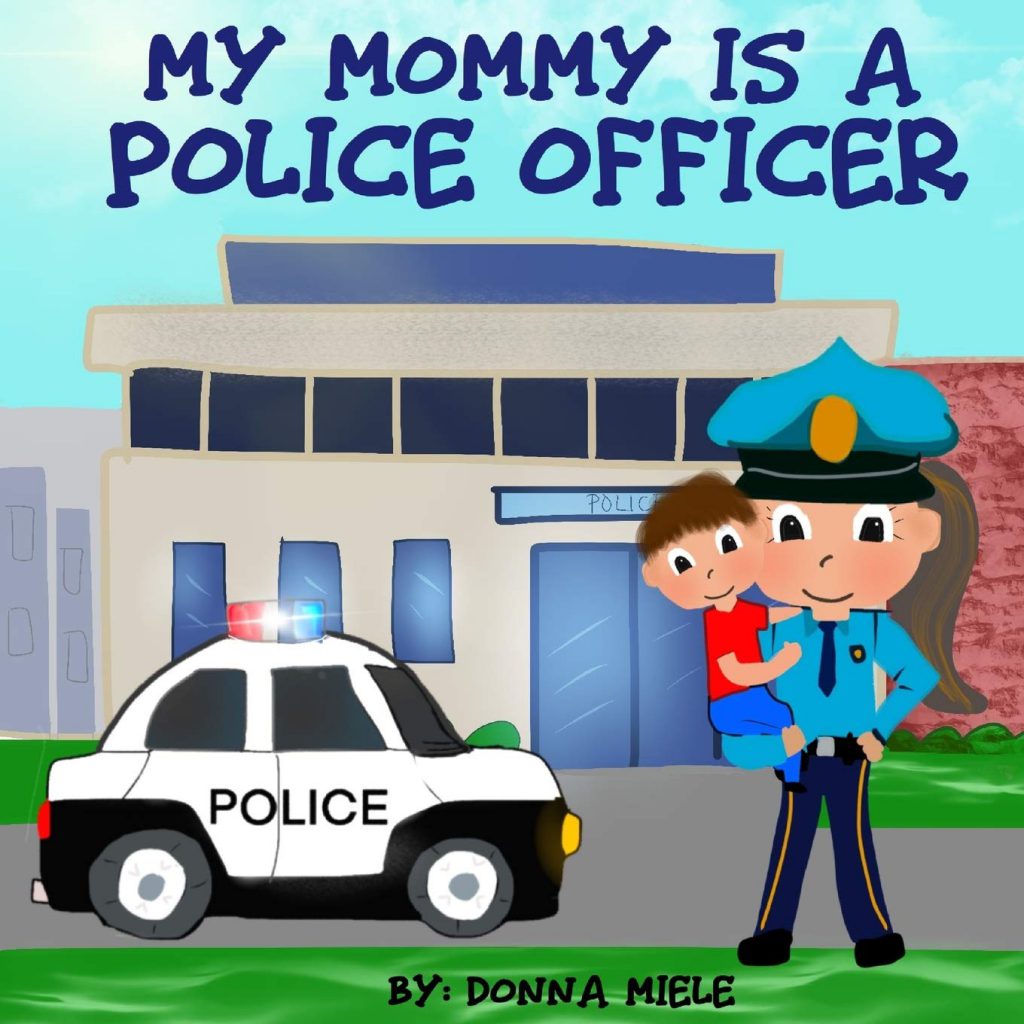
My Mommy is a Police Officer
by Donna Miele
A perfect book for the children of police officers to be read before leaving for work, or at any time. A great way to remind your little ones how much you love them even when you can’t always be there due to the nature of your job. A children’s story about a boy and his hero, his Police Officer Mommy, and how she keeps the community safe while being sure to let her child know how loved he is.
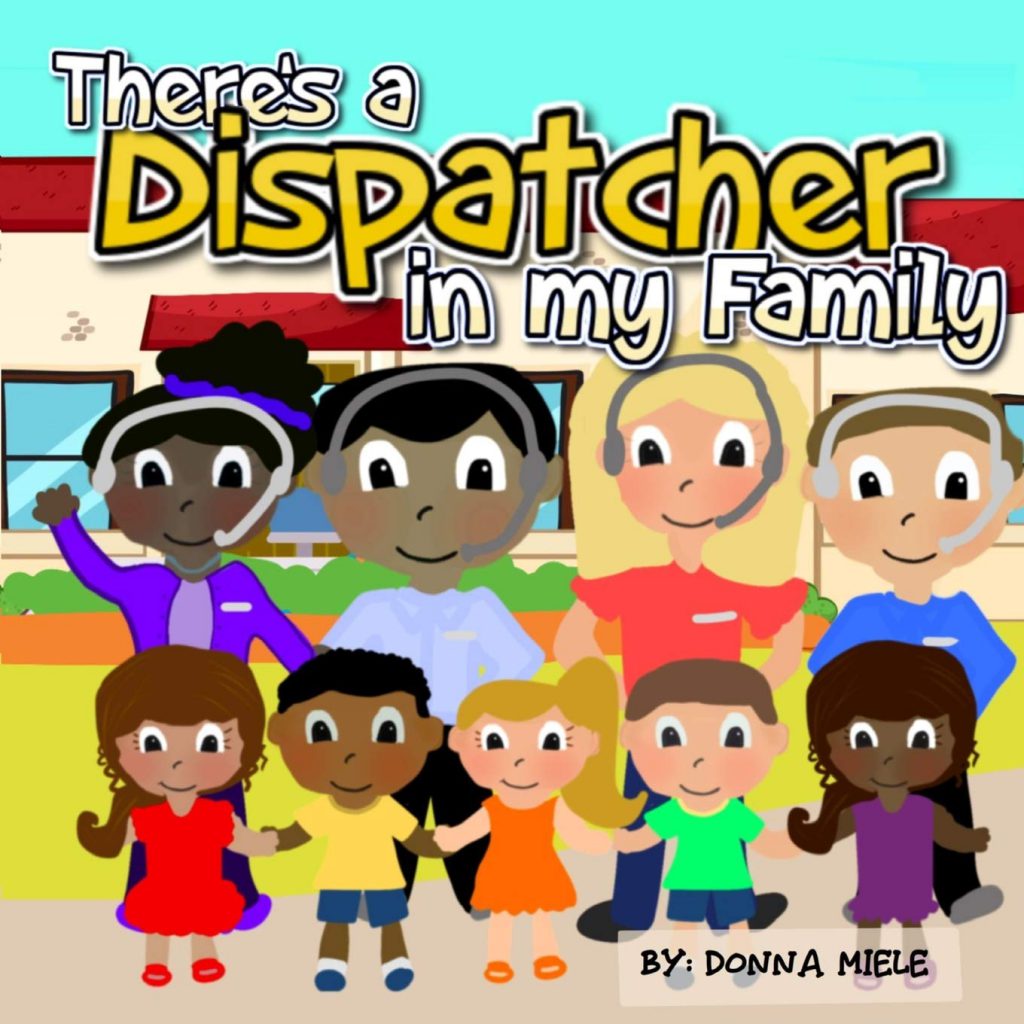
There’s a Dispatcher in my Family
by Donna Miele
“A dispatcher is a hero, with a strong mind and a caring heart…And whenever there is an emergency, dispatchers play a very important part!”
The perfect book for any children with a Dispatcher in their family! A story about Dispatchers, and how they are heroes that help the public each and every day, but above all their favorite thing is their family! Colorful illustrations and rhyming words to make this a favorite in your child’s library!
For more titles visit www.PoliceKidsBooks.com
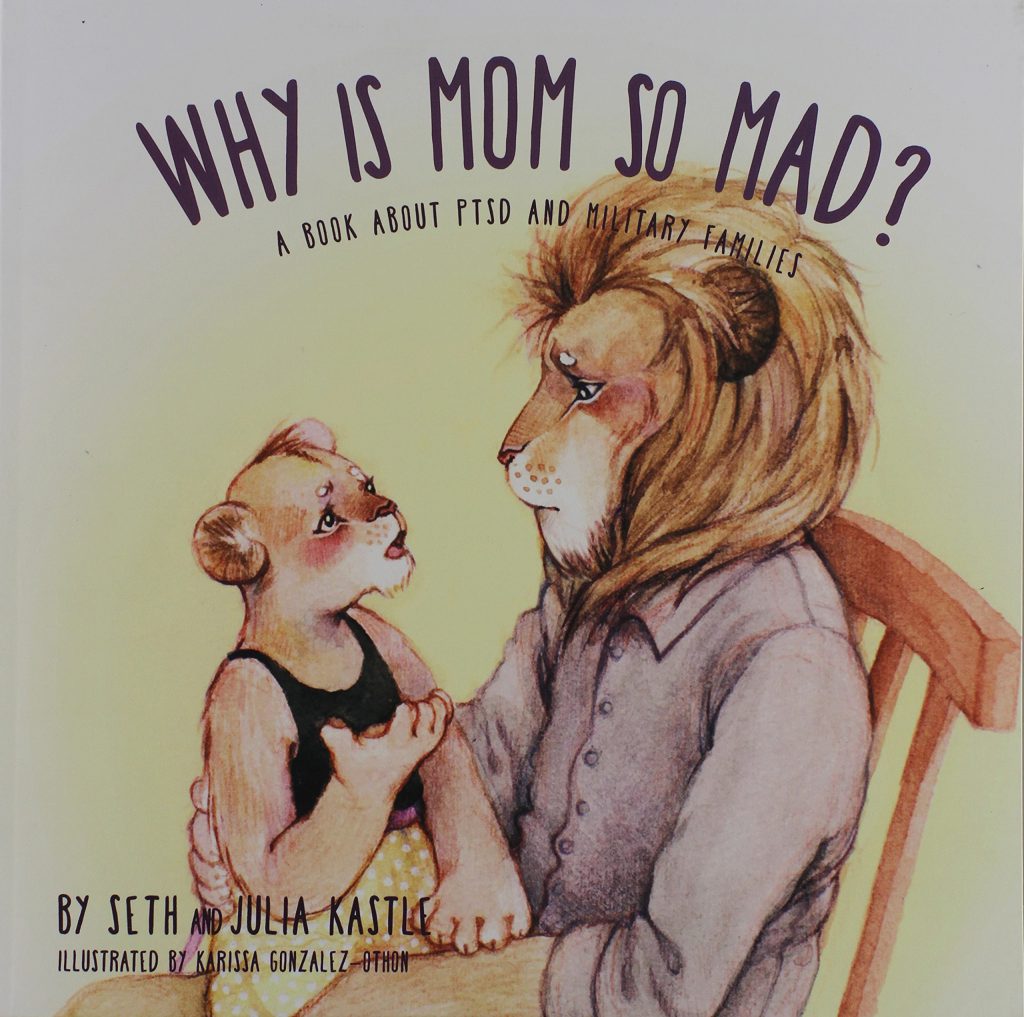
Why is Mom so Mad?
by Seth and Julia Kastle
The children’s issues picture book Why Is Mom So Mad? is a story for children in military families whose mother battles with combat related Post Traumatic Stress Disorder (PTSD). After a decade fighting wars on two fronts, tens of thousands of service members are coming home having trouble adjusting to civilian life; this includes struggling as parents. Asymmetrical warfare has blurred the lines of women in combat roles, female veterans are impacted by this through current conflicts more than ever.
Why Is Mom So Mad? Is a narrative story told from a family’s point of view (father and children) of a service member who struggles with PTSD and its symptoms. Many service members deal with anger, forgetfulness, sleepless nights, and nightmares. This book explains these and how they affect Mom. The moral of the story is that even though Mom gets angry and yells, she still loves her family more than anything.
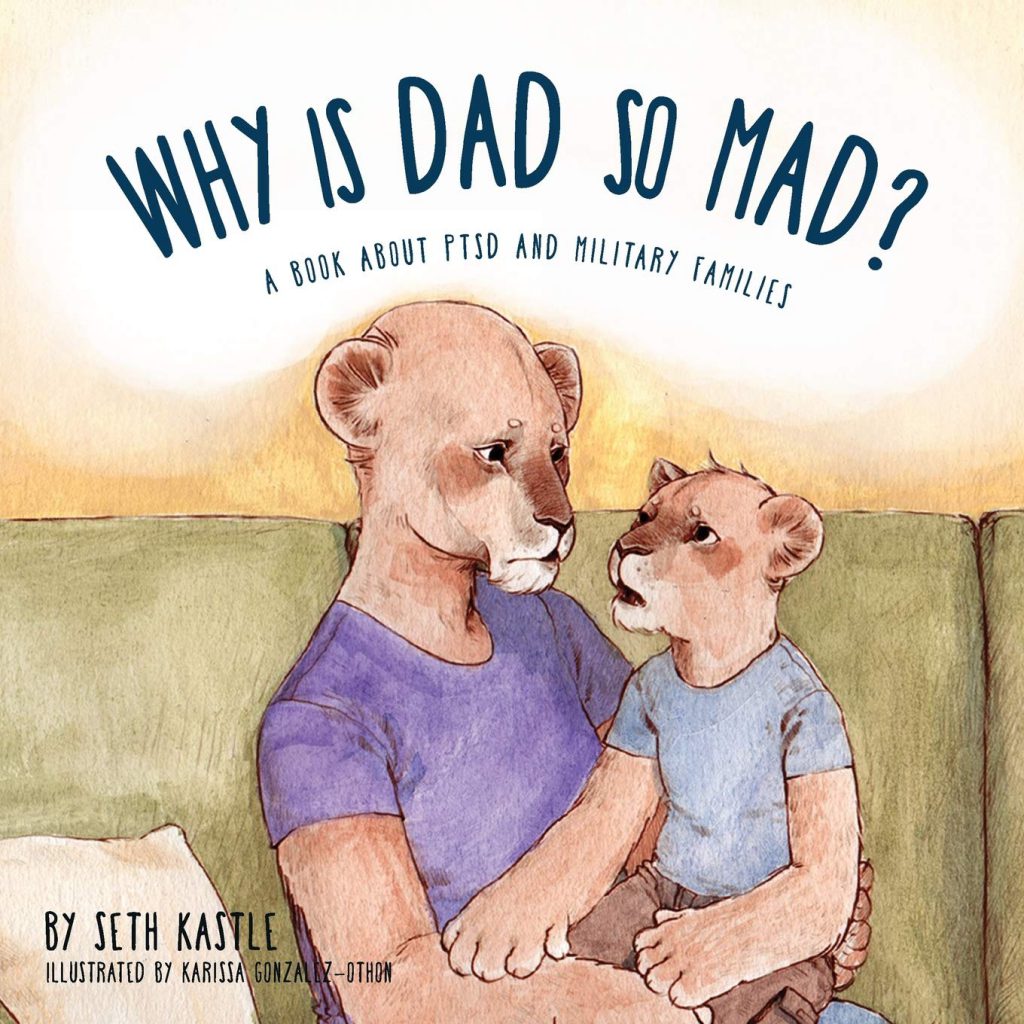
Why is Dad so Mad?
by Seth Kastle
he children’s issues picture book Why Is Dad So Mad? is a story for children in military families whose father battles with combat related Post Traumatic Stress Disorder (PTSD). After a decade fighting wars on two fronts, tens of thousands of service members are coming home having trouble adjusting to civilian life; this includes struggling as parents. Why Is Dad So Mad? Is a narrative story told from a family’s point of view (mother and children) of a service member who struggles with PTSD and its symptoms. Many service members deal with anger, forgetfulness, sleepless nights, and nightmares. This book explains these and how they affect Dad. The moral of the story is that even though Dad gets angry and yells, he still loves his family more than anything.
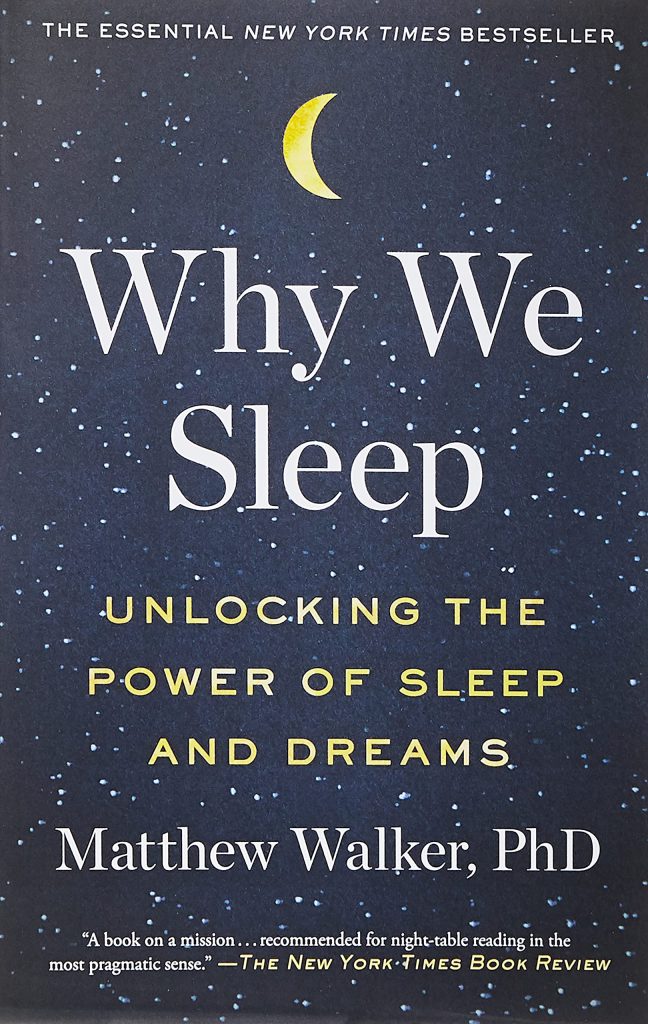
Why We Sleep
by Matthew Walker, PhD
Until very recently, science had no answer to the question of why we sleep, or what good it served, or why we suffer such devastating health consequences when it is absent. Compared to the other basic drives in life—eating, drinking, and reproducing—the purpose of sleep remains more elusive.
Within the brain, sleep enriches a diversity of functions, including our ability to learn, memorize, and make logical decisions. It recalibrates our emotions, restocks our immune system, fine-tunes our metabolism, and regulates our appetite. Dreaming creates a virtual reality space in which the brain melds past and present knowledge, inspiring creativity.
In this “compelling and utterly convincing” (The Sunday Times) book, preeminent neuroscientist and sleep expert Matthew Walker provides a revolutionary exploration of sleep, examining how it affects every aspect of our physical and mental well-being. Charting the most cutting-edge scientific breakthroughs, and marshalling his decades of research and clinical practice, Walker explains how we can harness sleep to improve learning, mood and energy levels, regulate hormones, prevent cancer, Alzheimer’s and diabetes, slow the effects of aging, and increase longevity. He also provides actionable steps towards getting a better night’s sleep every night.
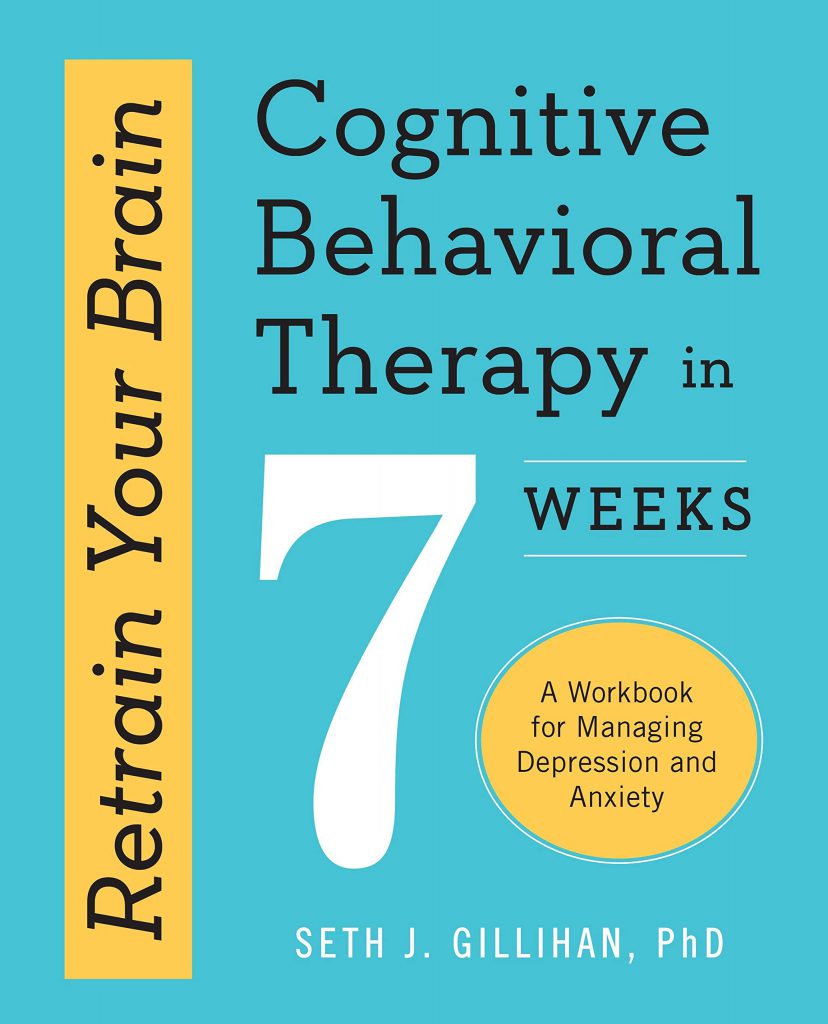
Retrain Your Brain
by Seth J. Gillihan, PhD
Getting through depression and anxiety requires changing the way you think. Retrain Your Brain: Cognitive Behavioral Therapy in 7 Weeks does just that. Offering a simple and practical plan that anyone can follow, this interactive workbook teaches you cognitive behavioral therapy (CBT)―an extremely effective approach to managing anxiety and depression. This workbook gives you the tools to work through your current problems and future challenges. Each lesson builds off the last, allowing you to build your cognitive behavioral therapy skills without getting overwhelmed.
Retrain Your Brain: Cognitive Behavioral Therapy in 7 Weeks includes:
- A Complete Guide to CBT―Learn what cognitive behavioral therapy is, how it can help you, and how to apply it to your life in just a few weeks.
- Practical Lessons―Simple, directed writing exercises make it easy to apply cognitive behavioral therapy to your life.
- True Relief―Discover how cognitive behavioral therapy can make a real, tangible difference by providing well-needed, long-lasting relief.
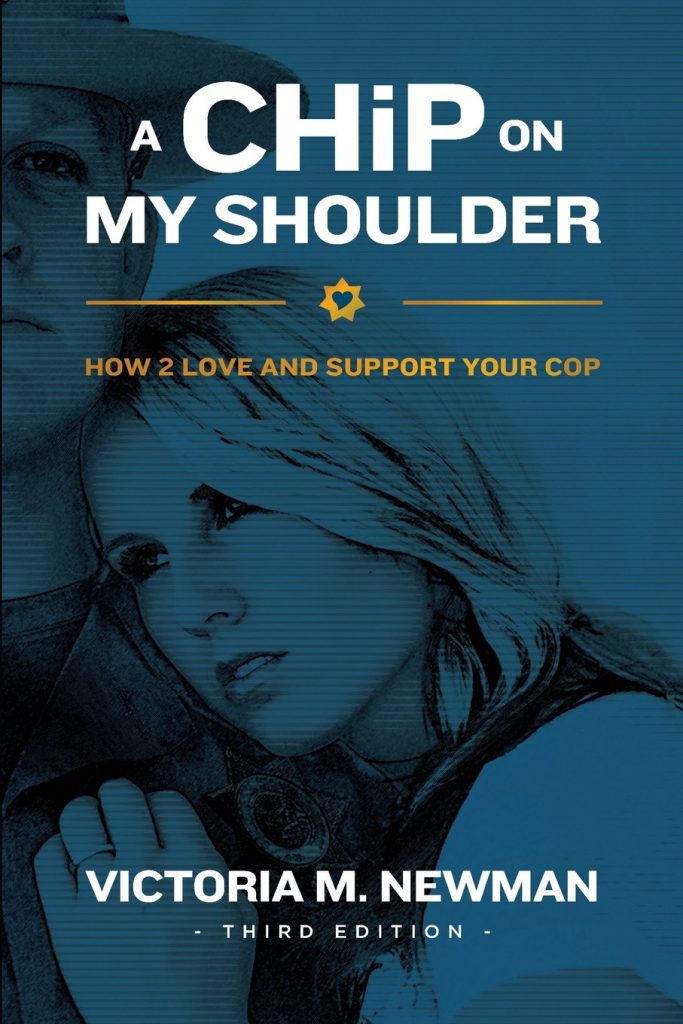
A CHiP on my Shoulder
by Victoria M. Newman
THE award-winning* go-to book for spouses of law enforcement officers based on the input of over 1000 police families, updated research, and the author’s experience of 30 years of marriage to a California Highway Patrolman. Support, encouragement, proven tips and positive perspectives that support both the home and the law enforcement career. This third edition is completely updated with an updated title and cover, new publisher, and the addition of 30K words. Better than ever! *This book was awarded First Place by the Public Safety Writer’s Association in the Published Nonfiction category.
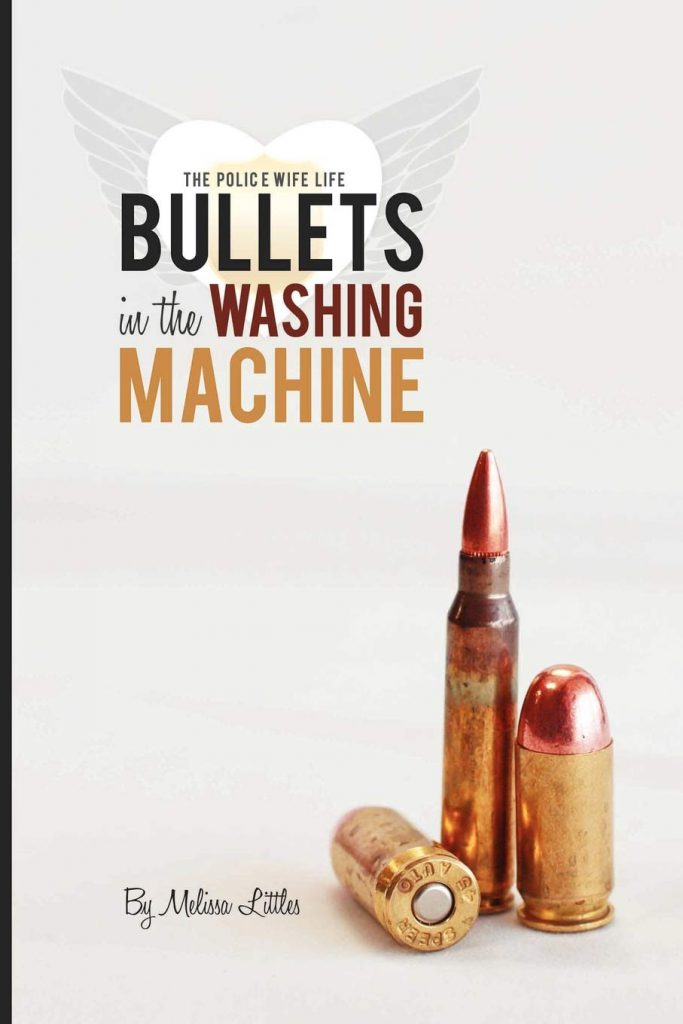
Bullets in the Washing Machine
by Melissa Littles
Melissa Littles, Founder of The Police Wife Life, is an advocate for Law Enforcement Officers and their families. Bullets in the Washing Machine, her first release, is a compilation of short stories and poems, focusing on seeing the positives through the daily struggles of living a life in Law Enforcement. Melissa hopes to not only bring encouragement to those in law enforcement but to bring awareness to the general public of the daily sacrifices and misconceptions related to law enforcement officers. Melissa Littles is married to Officer Bervis Littles of the Edmond Police Department, in Edmond, Oklahoma. Officer Littles is a Hostage Negotiator, Suicide Prevention Officer and a School Resource Officer.

The Crazy Lives of Police Wives
by Carolyn Whiting and Carolyn Laroche
A Police Officer’s calling in life is to serve and protect, and he would willingly lay down his life for all. If he would do that for a stranger, imagine all that he would do for his wife. Our law enforcement husbands are our heroes, we love them dearly and we wouldn’t trade them for the world, but being a Law Enforcement Officer’s wife comes with its own set of challenges. Law enforcement wives from across North America share communal advice, wisdom, experience, insight and laughter with fellow LEO wives. We offer a peek into our world, “the heart of the badge,” to our husbands, families, friends and neighbors. *** To further the mission of the book, author proceeds are donated to police related charities
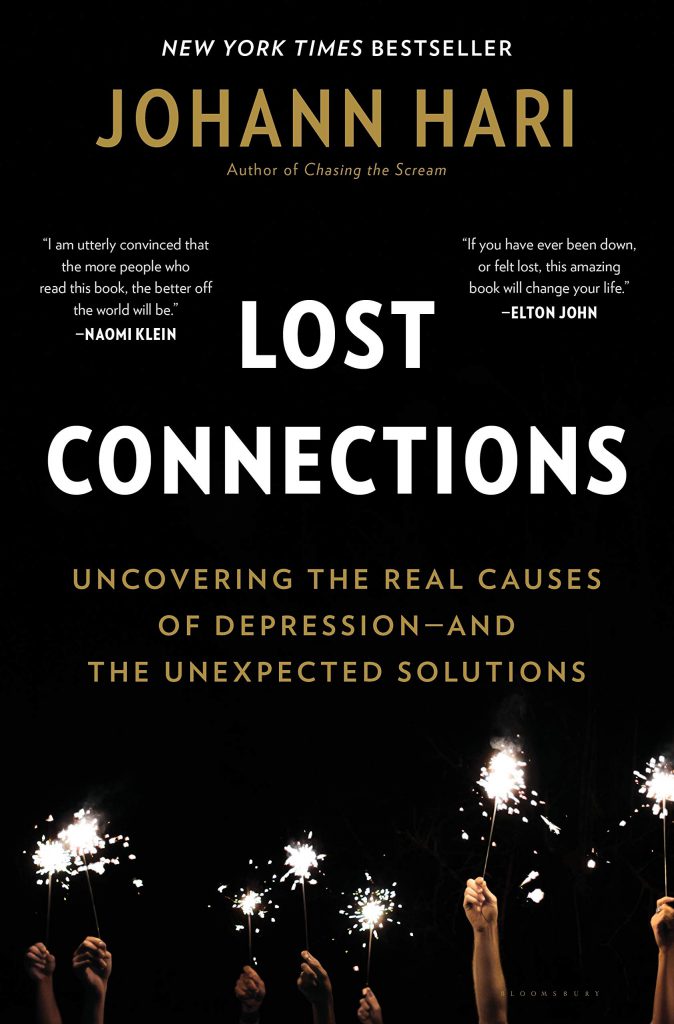
Lost Connections
by Johann Hari
There was a mystery haunting award-winning investigative journalist Johann Hari. He was thirty-nine years old, and almost every year he had been alive, depression and anxiety had increased in Britain and across the Western world. Why?
He had a very personal reason to ask this question. When he was a teenager, he had gone to his doctor and explained that he felt like pain was leaking out of him, and he couldn’t control it or understand it. Some of the solutions his doctor offered had given him some relief―but he remained in deep pain.
So, as an adult, he went on a forty-thousand-mile journey across the world to interview the leading experts about what causes depression and anxiety, and what solves them. He learned there is scientific evidence for nine different causes of depression and anxiety―and that this knowledge leads to a very different set of solutions: ones that offer real hope.
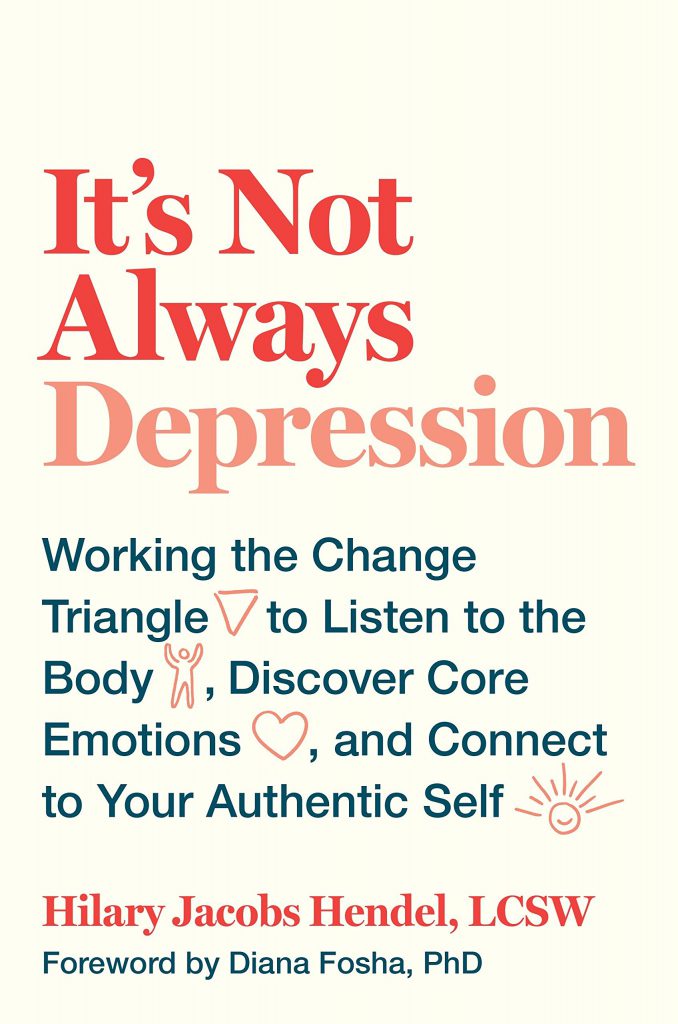
It’s Not Always Depression
by Hilary Jacobs Hendel
Whereas conventional therapy encourages patients to talk through past events that may trigger anxiety and depression, accelerated experiential dynamic psychotherapy (AEDP), the method practiced by Jacobs Hendel and pioneered by Diana Fosha, PhD, teaches us to identify the defenses and inhibitory emotions (shame, guilt, and anxiety) that block core emotions (anger, sadness, fear, disgust, joy, excitement, and sexual excitement). Fully experiencing core emotions allows us to enter an openhearted state where we are calm, curious, connected, compassionate, confident, courageous, and clear.
In It’s Not Always Depression, Jacobs Hendel shares a unique and pragmatic tool called the Change Triangle—a guide to carry you from a place of disconnection back to your true self. In these pages, she teaches lay readers and helping professionals alike
• why all emotions—even the most painful—have value.
• how to identify emotions and the defenses we put up against them.
• how to get to the root of anxiety—the most common mental illness of our time.
• how to have compassion for the child you were and the adult you are.
Jacobs Hendel provides navigational tools, body and thought exercises, candid personal anecdotes, and profound insights gleaned from her patients’ remarkable breakthroughs. She shows us how to work the Change Triangle in our everyday lives and chart a deeply personal, powerful, and hopeful course to psychological well-being and emotional engagement.
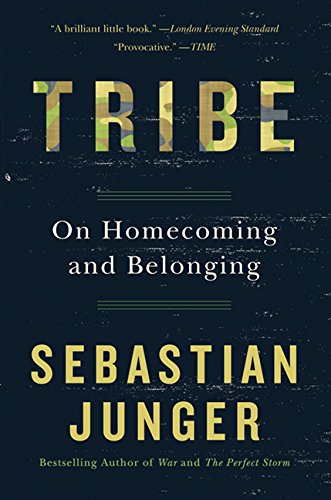
Tribe
by Sebastian Junger
There are ancient tribal behaviours—loyalty, interdependency, cooperation—that flourish in human communities during times of turmoil and suffering. These are the very same behaviours that typify good soldiering and foster a sense of belonging among troops, whether they’re fighting on the front lines or engaged in non-combat activities away from the action. Drawing from the fields of history, psychology and anthropology, bestselling author Sebastian Junger shows us the degree to which the structure of modern society is at odds with our tribal instincts, arguing that the difficulties many veterans face upon returning home from war stem not just from the trauma they’ve suffered, but also from the individualist nature of the societies they must reintegrate into.
A 2011 study by the Canadian Forces and Statistics Canada revealed that 78 per cent of military suicides between 1972 and 2006 involved veterans. Though these numbers are an implicit call to action, the government is just now taking steps to address the problems veterans face when they return home. But can the government ever truly eliminate the challenges faced by returning veterans? Or is the problem deeper, woven into the very fabric of our modern existence? Perhaps our circumstances are not so bleak, and simply understanding that—beneath our modern guises—we all belong to one tribe or another would help us face the problems not just of our nation but of our individual lives as well.
Widely researched and compellingly written, this timely look at how veterans react to coming home will change the conversation about veterans’ affairs and help us to repair our current social dynamic.